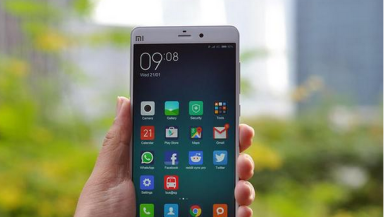
Qualcomm has been under a firestorm thanks to a list of issues surrounding the company's flagship chipset, Snapdragon 810. These issues include overheating and with the overheating of the chipset, thermal throttling occurs, which is a fail-safe mechanism that prevents irreparable damage to the components by automatically reducing the clock speed of the processor. While damage to the smartphone is avoided, it reduces overall performance substantially, which negates the purpose of a high-performing chipset if it cannot execute its capabilities properly.
It can be speculated that Xiaomi Mi Note Pro might be plagued with the same issues, but according to the latest benchmarking reports, the results are quite different. According to CFBench, the Snapdragon 810 version present inside Mi Note Pro is v2.1, meaning that this is the third time that Qualcomm has made changes to its current flagship SoC. It appears that the effort in tweaking the chipset has worked in Qualcomm's favor, because Mi Note Pro was able to obtain a 10,000 point lead against HTC One M9 and LG Flex 2. It should be noted that Mi Note Pro was able to achieve this feat while rendering a 1440p resolution, compared to the 1080p resolution featured on the remaining two handsets.
In addition, Snapdragon 810 present in Mi Note Pro is also able to keep its temperature in check. According to the source, the temperature of the processor only rose to 36.1 degrees Celsius after a mobile gaming application was being played on the handset for 20 minutes. With v2.1, Snapdragon 810 might have finally eradicated one of the most troubling issues experienced by smartphone users globally.
With the company's latest efforts, Qualcomm might finally be able to form new partnerships and mend broken ones such as HTC's and LG's. Earlier in the year, Samsung refused to incorporate Snapdragon 810 in its flagship smartphones since the South Korean phone giant made claims that the SoC was suffering from overheating issues. Even though Samsung had ulterior motives of adding its own Exynos 7420 in the mobile devices, the company had been right all along, even after Qualcomm refuted those claims.













